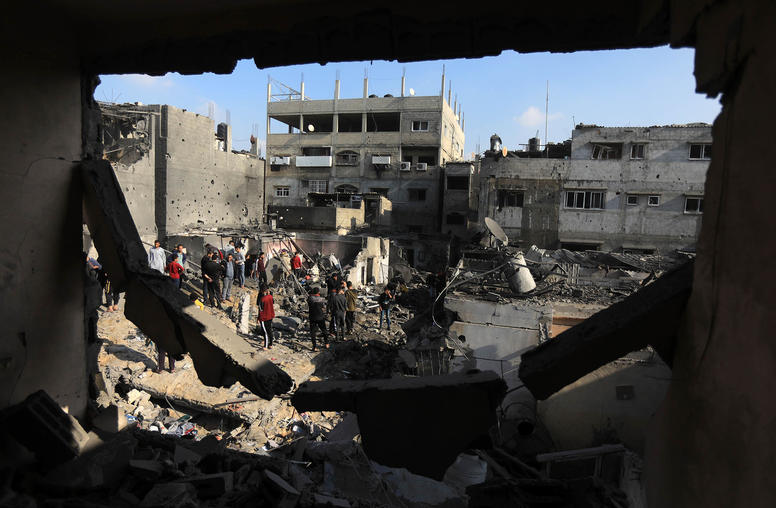Generals in the Cabinet Room
How the Military Shapes Israeli Policy
Israel’s foremost analyst of civil-military relations identifies and investigates a dramatic shift of power within Israel’s political system. Where once the military was usually the servant of civilian politicians, today, argues Yoram Peri, generals lead the way when it comes to foreign and defense policymaking.
Generals in the Cabinet Room has been awarded the Lt. Col. Meir and Rachel Tshetshik Prize for Strategic Studies on Israel's Security by the Institute for National Security Studies at Tel Aviv University, March 2008.
In what is certain to become a landmark study, Israel’s foremost analyst of civil-military relations identifies and investigates a dramatic shift of power within Israel’s political system. Where once the military was usually the servant of civilian politicians, today, argues Yoram Peri, generals lead the way when it comes to foreign and defense policymaking. The implications for Israeli-Palestinian relations, for Israeli democracy, and indeed for other democracies are profound.
Generals in the Cabinet Room offers unparalleled insights into the workings of Israel’s military-political complex over the past fifteen years. Drawing on extensive literature (much of it in Hebrew and thus largely unknown outside of Israel) and hundreds of interviews with leading players, Peri explains how Israel’s prolonged experience of low-intensity conflict and political crisis has enabled the military establishment to acquire unprecedented influence, shaping Israeli policy toward the Oslo process and the al-Aqsa intifada.
Sophisticated, authoritative, and evenhanded, Generals in the Cabinet Room presents scholars and analysts with a new model of civil-military relations and a new depth of understanding of the Israeli case. At the same time, the volume’s fluid style, colorful anecdotes, and fascinating vignettes make it accessible to a general readership.
About the Author
Yoram Peri, a former senior fellow at the United States Institute of Peace, is head of the Chaim Herzog Institute for Media, Politics, and Society and professor of political sociology and communication at Tel Aviv University. He was a political advisor to Yitzhak Rabin, and has been editor-in-chief of the Israeli daily Davar. His books include Between Battles and Ballots, The Assassination of Yitzhak Rabin, and Telepopulism.



